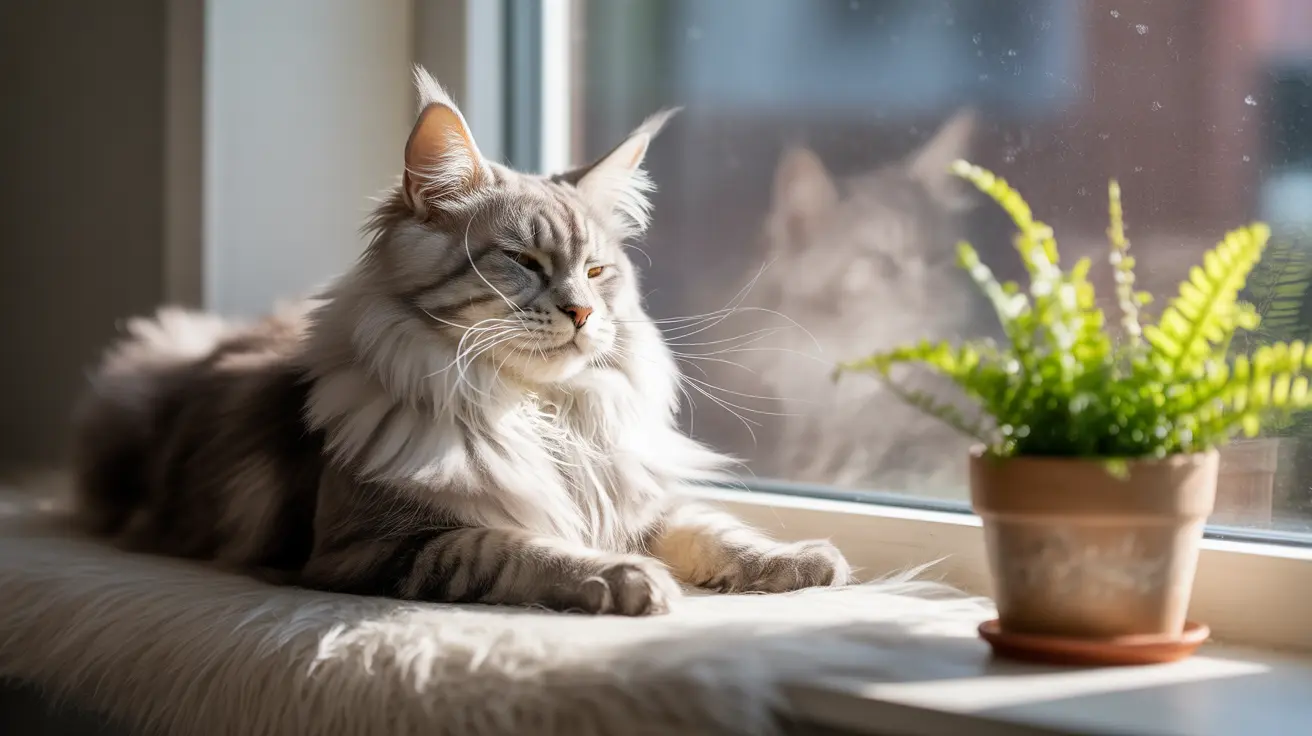Ever wondered what your feline friend gets up to while you're away? Understanding what cats do all day isn't just about satisfying our curiosity—it's key to ensuring their health and happiness. From their fascinating sleep patterns to their instinctive behaviors, cats maintain complex daily routines that reflect both their wild ancestry and domestic lifestyle.
Let's explore the mysterious world of feline daily activities and uncover the science behind their routines, helping you better understand and care for your furry companion.
The Art of Cat Napping: Understanding Feline Sleep Patterns
If there's one thing cats excel at, it's sleeping. Cats typically sleep between 12 to 16 hours daily, with some logging up to 20 hours, particularly kittens and senior cats. This isn't laziness—it's a natural behavior inherited from their wild ancestors who needed to conserve energy for hunting.
Unlike humans, cats are polyphasic sleepers, taking multiple short naps throughout the day and night. These naps usually last between 50 to 113 minutes, averaging around 78 minutes per session. This sleep pattern aligns with their crepuscular nature, making them most active during dawn and dusk.
Grooming and Self-Care Rituals
When not sleeping, cats dedicate a significant portion of their day to grooming. They spend approximately 30% of their waking hours meticulously cleaning themselves, which serves multiple purposes beyond basic hygiene. This behavior helps regulate body temperature, distribute natural oils throughout their coat, and promote relaxation.
Social grooming, or allogrooming, is another important daily activity. Cats living together often groom each other as a sign of bonding and social connection, strengthening their relationships within the household.
Hunting and Play: Satisfying Natural Instincts
Even well-fed house cats maintain their hunting instincts through play and exploration. They typically engage in 1-3 concentrated play sessions daily, mimicking the hunt-rest-hunt cycle of their wild counterparts. These sessions often include stalking, chasing, and pouncing behaviors.
Window watching is another favorite pastime, with many cats spending hours observing birds and other wildlife. This activity often triggers "chattering"—a distinctive behavior that reflects their predatory excitement.
Territory Management and Social Interactions
Cats are territorial creatures and spend part of their day maintaining their domain. This includes:
- Marking their territory through rubbing and scratching
- Kneading soft surfaces ("making biscuits")
- Head bunting with their favorite humans
- Patrolling their territory and checking favorite spots
Environmental Observation and Rest Periods
Between active periods, cats engage in what might look like doing nothing but is actually important environmental monitoring. They often choose elevated positions or sunny spots to observe their surroundings, staying alert to changes in their environment while appearing to rest.
Frequently Asked Questions
Why do cats sleep so much and what does their daily sleep pattern look like?
Cats sleep 12-16 hours daily in multiple short naps (polyphasic sleep pattern). This extensive sleep helps conserve energy for hunting and play, with sleep patterns evolved from their wild ancestors' need to rest between hunting sessions.
How can I create an ideal daily schedule that keeps my cat happy and healthy?
Establish regular feeding times, provide 1-3 daily play sessions, ensure access to sunny spots and elevated perches, and maintain consistent sleeping areas. Include interactive toys and environmental enrichment to prevent boredom.
What are common activities cats do besides sleeping during the day?
Cats engage in grooming, playing, hunting behaviors, territorial marking, social interactions, window watching, and environmental observation. They also spend time eating, drinking, and using their litter box.
How does a cat's crepuscular nature affect their play and rest times?
Being crepuscular means cats are naturally most active at dawn and dusk. This affects their sleep-wake cycle, making them more playful and energetic during these times while being relatively quieter during mid-day and late night.
What signs in my cat's daily routine might indicate health or stress issues?
Watch for significant changes in sleep patterns, excessive or decreased grooming, changes in appetite, unusual lethargy, increased aggression, or withdrawal from normal activities. These changes can signal underlying health or stress issues requiring veterinary attention.
Understanding what cats do all day helps us better meet their needs and ensure they live healthy, enriched lives. By providing appropriate opportunities for sleep, play, and environmental engagement, we can help our feline friends maintain their natural behaviors while thriving in our homes.






